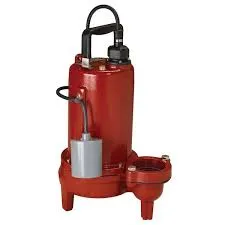English
- Afrikaans
- Albanian
- Amharic
- Arabic
- Armenian
- Azerbaijani
- Basque
- Belarusian
- Bengali
- Bosnian
- Bulgarian
- Catalan
- Cebuano
- Corsican
- Croatian
- Czech
- Danish
- Dutch
- English
- Esperanto
- Estonian
- Finnish
- French
- Frisian
- Galician
- Georgian
- German
- Greek
- Gujarati
- Haitian Creole
- hausa
- hawaiian
- Hebrew
- Hindi
- Miao
- Hungarian
- Icelandic
- igbo
- Indonesian
- irish
- Italian
- Japanese
- Javanese
- Kannada
- kazakh
- Khmer
- Rwandese
- Korean
- Kurdish
- Kyrgyz
- Lao
- Latin
- Latvian
- Lithuanian
- Luxembourgish
- Macedonian
- Malgashi
- Malay
- Malayalam
- Maltese
- Maori
- Marathi
- Mongolian
- Myanmar
- Nepali
- Norwegian
- Norwegian
- Occitan
- Pashto
- Persian
- Polish
- Portuguese
- Punjabi
- Romanian
- Russian
- Samoan
- Scottish Gaelic
- Serbian
- Sesotho
- Shona
- Sindhi
- Sinhala
- Slovak
- Slovenian
- Somali
- Spanish
- Sundanese
- Swahili
- Swedish
- Tagalog
- Tajik
- Tamil
- Tatar
- Telugu
- Thai
- Turkish
- Turkmen
- Ukrainian
- Urdu
- Uighur
- Uzbek
- Vietnamese
- Welsh
- Bantu
- Yiddish
- Yoruba
- Zulu
Telephone: +86 13120555503
Email: frank@cypump.com
Nov . 17, 2024 00:34 Back to list
septic drain field pump
Understanding Septic Drain Field Pumps A Necessity for Effective Wastewater Management
In modern wastewater management, septic systems play a crucial role in treating household sewage, particularly in rural areas where centralized sewage systems are not feasible. Central to the functionality of a septic system is the septic drain field, also known as a leach field, which utilizes natural processes to filter and disperse wastewater. However, in certain situations, the efficiency of a septic drain field can be enhanced with the use of a septic drain field pump. This article explores the importance and functioning of these pumps, including their installation, maintenance, and benefits.
What is a Septic Drain Field Pump?
A septic drain field pump is a crucial component in a type of septic system known as a pump-up or pressurized septic system. Unlike traditional gravity-fed systems that rely on the natural slope of the land to direct wastewater to the drain field, this type of system uses mechanical pumps to move wastewater, particularly from the septic tank to the drain field. This is particularly beneficial for properties where the drain field is situated at a higher elevation than the septic tank.
How Does It Work?
The septic drain field pump operates by transferring effluent from the septic tank to the drain field. When the wastewater level in the septic tank rises to a certain height, a float switch activates the pump. The pump then pushes the effluent through pipes to the drain field, where it can disperse into the soil for further treatment and filtration. This pressurized system allows for more effective distribution of wastewater, preventing pooling and ensuring that the effluent interacts fully with the soil and microorganisms in the drain field.
Installation Considerations
Proper installation of a septic drain field pump is essential for its effectiveness and longevity
. It requires professional assessment to determine the correct pump size, as well as the right location for both the septic tank and drain field. In many cases, local regulations dictate the types of systems permitted, so it is vital to consult with a licensed contractor or septic system expert who is familiar with local codes.Maintenance and Care
septic drain field pump

Regular maintenance is key to ensuring that a septic drain field pump operates efficiently. This includes routine checks to clean the pump and inspect components such as the float switch and electrical connections. Homeowners should also monitor the septic tank and plan for regular pumping (usually every three to five years) to prevent solids from reaching the pump and clogging the system. Signs that a pump may need attention include slow drainage, unusual odors, or sewage backing up.
Benefits of Using a Septic Drain Field Pump
1. Increased Efficiency By using a pump, effluent can be distributed more evenly across the drain field, which can enhance the overall treatment process and reduce the likelihood of system failure due to saturated soil.
2. Adaptability Septic drain field pumps allow for more flexibility in site planning. Homeowners can install septic systems in areas with challenging topography or where traditional gravity-fed systems would not work.
3. Longevity With proper maintenance, a quality pump can extend the effective life of a septic system, allowing homeowners to avoid costly repairs or replacements.
4. Environmental Protection Efficient wastewater management helps protect local water sources by ensuring that treated effluent is adequately filtered before entering the soil.
Conclusion
Septic drain field pumps are invaluable tools in the realm of wastewater management, particularly for homeowners seeking efficient and effective solutions for sewage treatment. Understanding their function, installation, and maintenance can help ensure that septic systems operate smoothly and protect the environment. With regular upkeep and mindful operation, these pumps facilitate healthy ecosystems while providing essential sanitation services to communities that rely on septic systems. Whether you're a homeowner considering a septic system installation or an individual looking to improve your current system, investing in a quality septic drain field pump can offer long-term benefits.
-
Heavy-Duty Mining Sludge Pumps - Wear-Resistant Slurry Handling
NewsAug.02,2025
-
Horizontal Split Case Pump with GPT-4 Turbo | High Efficiency
NewsAug.01,2025
-
ISG Series Pipeline Pump - Chi Yuan Pumps | High Efficiency, Durable Design
NewsAug.01,2025
-
Advanced Flue Gas Desulfurization Pump with GPT-4 Turbo | Durable & Efficient
NewsJul.31,2025
-
ISG Series Vertical Pipeline Pump - Chi Yuan Pumps | Advanced Hydraulic Design&Durable Construction
NewsJul.31,2025
-
ISG Series Vertical Pipeline Pump - Chi Yuan Pumps | Energy Efficient & Low Noise
NewsJul.31,2025










